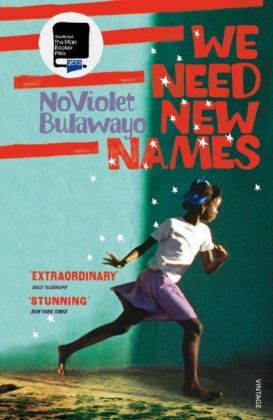It is a stubborn and uncomfortable protagonist who leads the reader as a first-person narrator through NoViolet Bulawayo’s novel “We Need New Names” and thus through the postcolonial realities of the world at the beginning of the 21st century: Darling is ten years old at the beginning of the novel and grows up in an improvised settlement in Zimbabwe in the early 2000s. With her friends, she explores a society marked by radical inequality and dreams of migrating to her aunt in the United States. When this promise finally becomes reality, Darling is confronted with the contradictions of life in migration in the second part of the novella. In both parts, NoViolet Bulawayo narrates in a clear and pictorial, at times gruff language that does not lack drasticness.
The child’s perspective, with all its inventiveness, its apparent naivety and immediacy, makes the experiences of economic, social and physical violence, of inequality and arbitrariness, of racism and exclusion stand out all the more clearly in contrast. Despite all these structural inequalities, Bulawayo shows Darling in her search for identity in a world full of contradictions as an acting subject full of stubbornness.
The author’s first publication was highly praised in the feature pages of international media after its release and won numerous awards.
At the same time, critical voices were also heard, primarily from black and Afro-diasporic communities: The portrayals of living conditions and people in Zimbabwe were one-sided, stereotyped, and made a simple dichotomous distinction between a poor Africa and a civilized West. It would thus satisfy the expectations and fantasies of a white and/or Western readership.
The book is also available in German under the title “Wir brauchen neue Namen”.
NoViolet Bulawayo 2013: We need new names. London: Random House UK.
If you don’t have a bookstore worth supporting near you, you can also buy the book from the alternative non-profit online bookstore links-lesen.de, which supports political projects with the profits. The link to the book can be found here.

